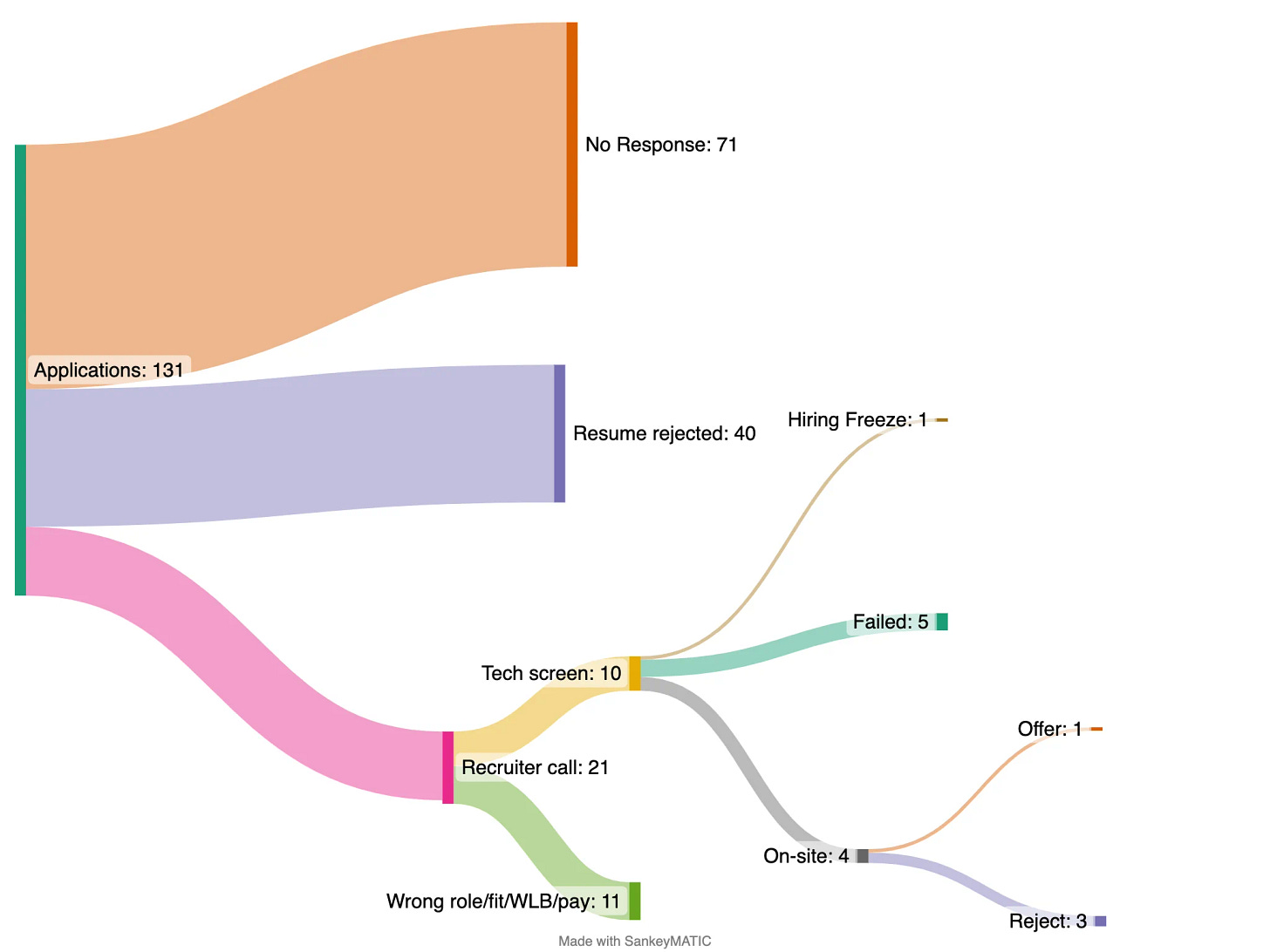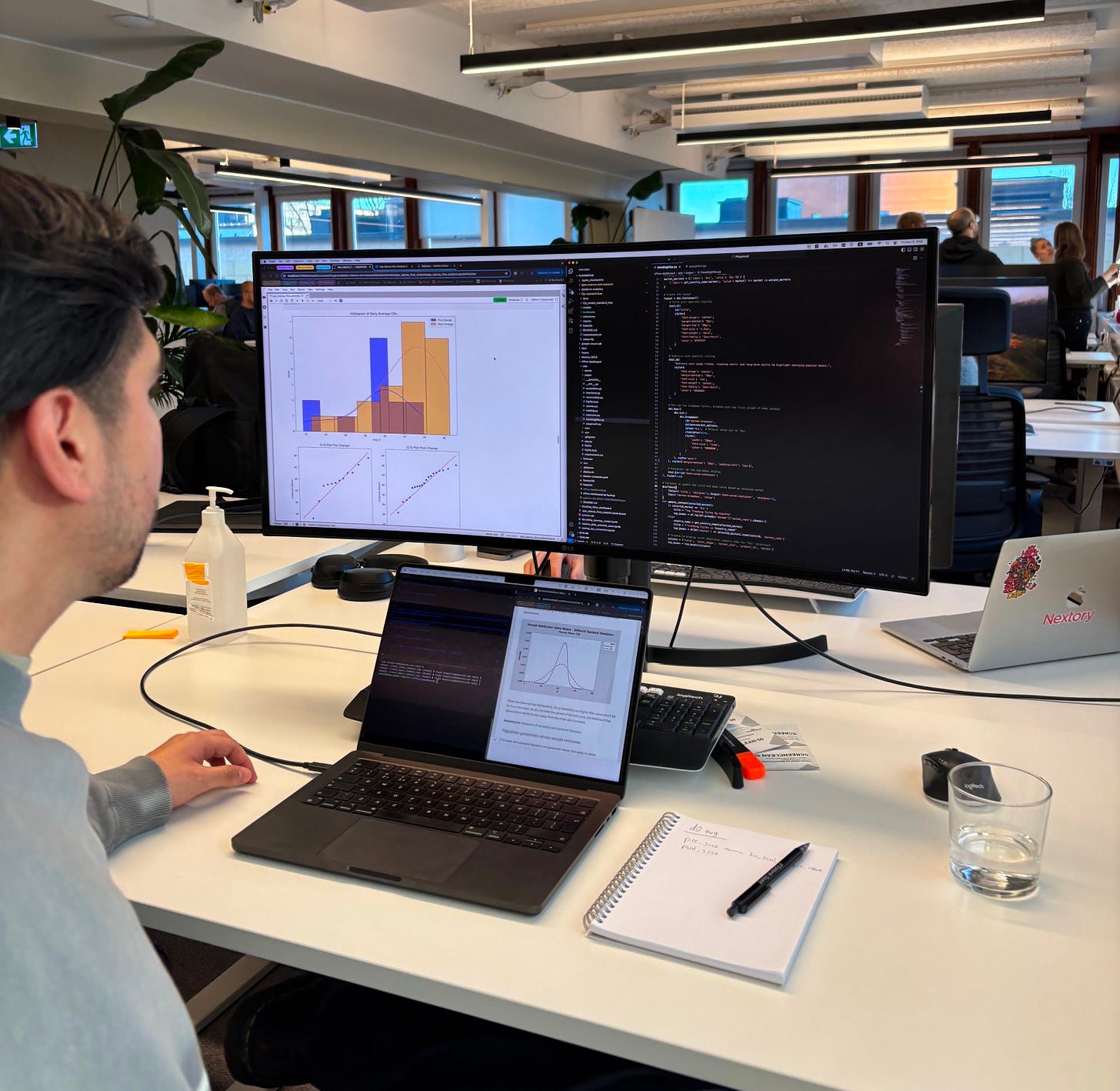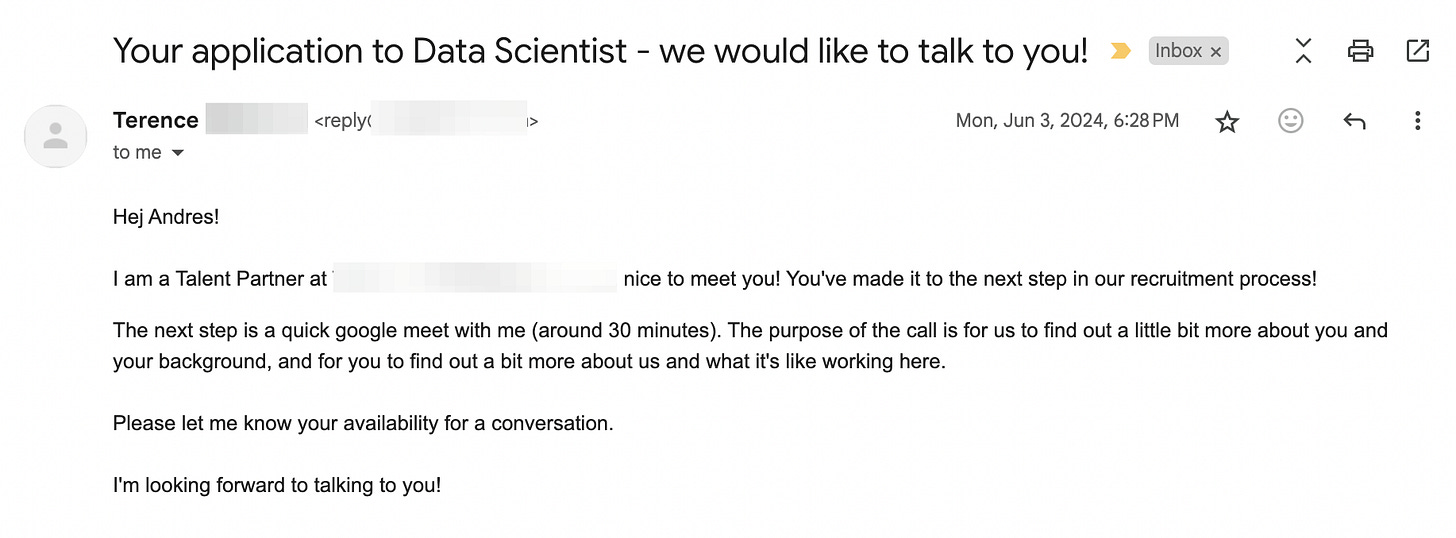This Is How I Prepare for Data Science Interviews as a Senior Data Scientist
3 simple steps (plus a key strategy)
I’ve been through it all…
Grueling technical interviews
Countless rejections
The grind of endless applications and take-home assignments
The anxiety of waiting, only to get rejected
For a while, I thought I just wasn’t good enough. But over time, I started to notice patterns. The people who succeeded weren’t always the smartest, they were the ones who prepared with a strategy.
So I changed my approach.
I refined how I studied, practiced, and positioned myself. Small wins started adding up, and eventually, I found myself choosing between multiple job offers.
And the ultimate test: landing a role in just 3 months during the brutal job market of 2024.
After 7 years of navigating the Data Science job market, experimenting, failing, refining, I’ve built a strategy that works.
A strategy that has helped me land roles at top companies and guided others to do the same.
And here’s the truth: Interview prep is a lot simpler than people make it out to be. But without a clear framework (and the right mindset), it’s easy to overcomplicate.
This is what we’ll cover:
Mindset shifts (plus advice for aspiring data scientist)
Speaking the language of value/impact
Developing a clear strategy for the technical interview
How to actually practice
(For paid subscribers) 🎥 Video walkthrough of how I approach this framework
Key mindset shifts
The fact that mindset is often ignored as a key part of interview prep is exactly what keeps so many people from landing their dream roles.
In reality, it makes all the difference.
And there are two that I’ve identified to have the biggest impact:
Accept that job hunting is a full-time job in itself

Preparing for interviews takes serious time and effort, so don’t let anyone tell you otherwise. Even experienced candidates do not just "wing it." They study, practice, and refine their approach.
If you treat prep as an afterthought, you will struggle. But if you commit to it like a real job, you will walk into interviews ready to perform at your best.
See yourself as part of the team
Don’t think of yourself as just another candidate. Pretend you are already working at the company as part of their data team. This will change the way you speak, present your value, and ultimately, how you are perceived.
💡 A quick note on confidence (especially for those who lack work experience): Confidence doesn’t magically appear, and its almost impossible to fake during the technical rounds. Confidence comes from practice (lots of it, over time). Do projects, fail, get stuck, fail again. That’s how you walk in the door and actually know your shit.
Once you have this out of the way, you are ready to start preparing…
The framework
This is the strategy I follow with every single job interview, from the moment I get that initial email by the recruiter:
Step 1: Study the company & business in depth
How does the business or product work? What are their biggest challenges? How does data science fit into their strategy? Learn to speak their language, the language of impact.
Understanding the business at a deeper level helps you ask more relevant and memorable questions while refining how you present your value.
Step 2: Analyze the job description closely
This helps you prioritize exactly what to focus on for the technical portion of the interview. You are looking to identify both technical and soft skills.
For example, if they mention A/B testing repeatedly, make it a top priority in your prep list.
I literally read job descriptions 10 times to catch every nuance that could help me stand out. I treat it as my cheat sheet.
💡 Also, don’t be afraid to ask the recruiter or hiring manager what they expect from you during each interview (specially in the technical portion). You’d be surprise how much recruiters are willing to help.
Step 3: Do mock interviews
Knowing the answer isn’t enough, you have to be able to explain it clearly. Practicing under pressure helps identify weak spots before it actually matters.
This ensures that by the time you’re in the real interview, you’re not just answering questions—you’re communicating with confidence.
💡 You can do this with an experienced data scientist friend or better yet, a data science coach who can create personalized sessions based on your specific needs.
📣 What perks do you get as a paid subscriber?
Full access to all public + premium posts.
A free copy of my Data Science Project Ideas PDF (2025 edition).
A free copy of “Data Science Interview Case Studies (2025 Edition)“.
A 25% off coupon for a 1:1 mentoring session.
Occasional live Q&As and exclusive workshops.
🎥 Video Walkthrough
Let me show you how I approach this framework, from how I read job descriptions to how I find extra resources to help me prepare.



